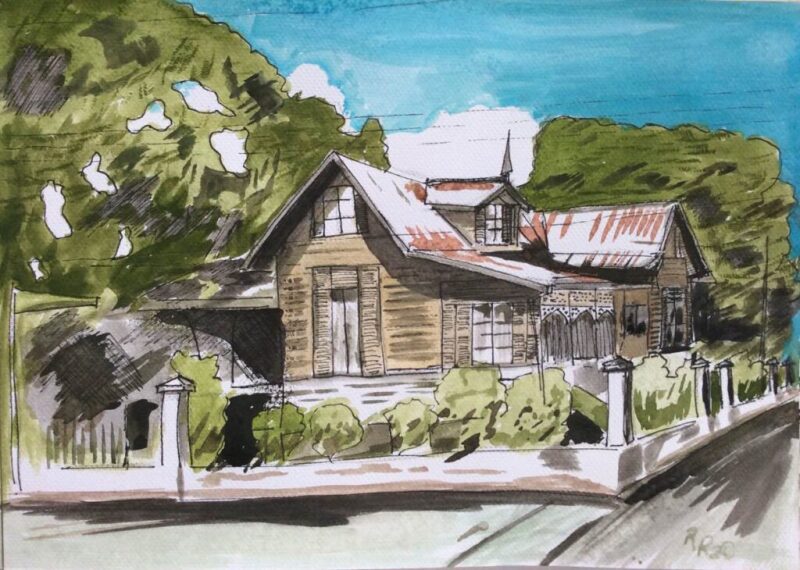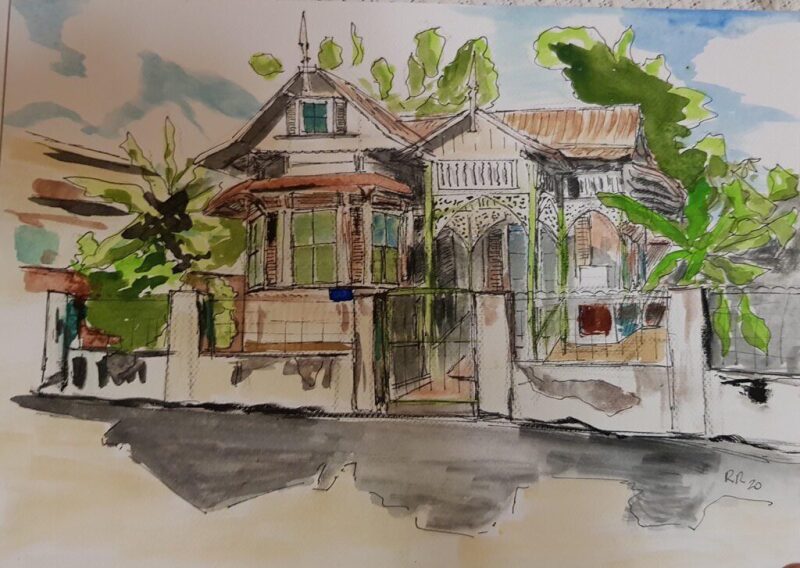I’ve always felt that experiences are more important than things. “What does that mean,” you ask? Well, for example, I’ve never owned an automatic car. The experience of driving is important with all the tactile feedback, inputs, and outputs. It is not just a mode of transportation, but something to take in fully. Life is made up of these interlaced experiences, engagement in everyday activities.
In my professional life, I have followed the path of engineering; surveying and geomatics, to be precise. Although professionally trained as a surveyor, the geography of my location [Trinidad and Tobago] lends itself to our abundant natural resources, and many have found a career in the oil and gas industry. To me, a fundamental understanding of how things work is an important part of interacting with the world around us. My career has spanned 25 years and taken a few twists and turns in the process. Starting with mudlogging, moving to software sales, and then more recently, working in engineering and management. Although the roles have been technical, I’ve always known I had a creative side.
Over the years, the level of responsibility has naturally increased, especially with the country manager and business development manager positions. Managing a small team with time-sensitive customer needs resulted in being available and accountable 24 hours a day, 365 days a year. Engineering, managing a full-service facility, and reporting to our parent company in the US required extreme focus. There are some incredible stories over the years—incidents that fueled learning and experience. One such story was where a customer called on a Wednesday afternoon, asking for a tool weighing over 10,000 lbs to be delivered, ready to go offshore the very next day. That meant prepping and shipping a tool on a chartered flight from Houston to Trinidad with one day’s notice. I’ll never forget the conversation with my colleague in the US. He calmly said, “I don’t see why not.” The tool made it in time for the operation on Thursday.
People deal with stress in many ways. For me, I decided to revisit an on-and-off childhood hobby. As long as I can remember, I’ve been drawing, painting, and doodling; I may have even defaced a desk or two at school in my time. Many years ago, my wife, knowing of my interest, bought me a very nice sketch pad and painting material as a present. As these things go, they were left to languish as life got in the way. Inspiration was lacking, and the courage to start was slow in coming.
In 2018, something clicked. I picked up the sketch book and a pack of oil pastels and sketched out three coconuts on a page. The rest, as they say, was history. Since that day, I have done at least one piece a week. They vary in media and style as I experiment. Sketching in pen, pencil, and conte crayon, watercolor, acrylics and oils, and most recently, I’ve dabbled in a little gouache painting. Subject matter tends to be inspired by my Caribbean environment. An occasional portrait, a lot of green flora, and many local flowers—hibiscus, gingers, frangipani—have all found their way on the canvas or paper.
By far, though, my favorite subjects are our quaint, colonial-style houses found on the islands of Trinidad and Tobago. For many years, our office was in Port-of-Spain, our capital city. Many a lunch time, I would take walks to seek out these architectural beauties. As a progressive nation, we have seen a lot of change in the built landscape in the last 30 years. As a result, many of these houses have been torn down to make way for modern concrete and glass multistory buildings.
While walking through the city, you can see the little houses hiding in between the gaudy monoliths. The homes are framed by vegetation, usually palm trees or banana trees, the occasional lime tree here and there. Their entrances are covered and embellished in wooden fretwork, carved intricately. We call them “gingerbread” houses.

There are banks of windows on each wall, flanked by open shutters to promote airflow within the dwelling. These were constructed before the advent of air conditioning, so all the design caters for the sweltering Caribbean heat. Tall ceilings, with open topped walls, and raised flooring on stilts all contributed to a cool interior.
Towards the back of each house, there is always the ubiquitous mango tree and its ever-present brother, the coconut tree. The whole scene makes for a feeling of relaxed elegance of a bygone era. A nostalgic trip that is slowly disappearing.
The walks translating into art is a natural progression. I’m happy to be able to recreate and immortalize them in my artwork. Art is meditation. As an amateur, I need intense concentration for an hour or more at a time. It is work and needs practice. They don’t call them “artworks” for nothing.
I gauge and monitor progress by posting on social media, chatting with friends and family about each piece. The body of work has grown from some, frankly, silly looking sketches to passable artwork over the last few years. The ongoing comments, support, and encouragement at home and on social media helps to fuel the creative process and the drive to continue experimenting and growing. I’ve had several offers to purchase pieces. This for me is a lovely bonus, as the primary objective is to have a space to express and be creative. To stop for an hour or two and reflect, to grow and to continue learning. To meditate.
This journey, like anything worthwhile, will never end. It is an experience, and I’d encourage young professionals navigating this challenging industry to find their own off-hours activity that brings them that sense of joy and peace. There’s no downside to exploring other parts of yourself, and you might be surprised that the skills you discover can benefit you in your life and career in ways you never expected.

Randy Rambhai was born in Trinidad and Tobago. After attending Presentation College San Fernando, he completed his BSc in surveying and land information at the University of the West Indies, St. Augustine, in 1999. From 1996, he has worked as a mudlogger for Halliburton and Baker Hughes, in solution sales at Oracle for 5 years, and 15 years with National Oilwell Varco managing Caribbean sales and operations in various engineering and management roles.
[The article was sourced from the author by TWA editor Stephen Forrester.]

